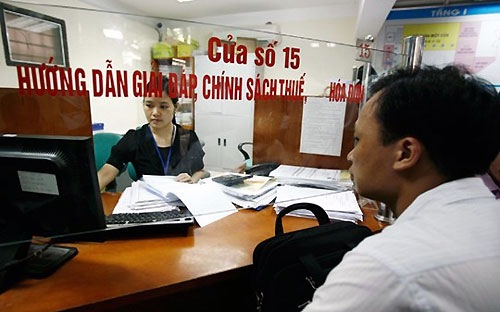What are disputes in e-transactions? What are the regulations on settlement of disputes in e-transactions in Vietnam? - Bich Lien (Binh Duong, Vietnam)

Regulations on settlement of disputes in e-transactions in Vietnam (Internet image)
Regarding this issue, LawNet would like to answer as follows:
1. What are disputes in e-transactions?
Article 51 of the Law on E-Transactions 2005 stipulates disputes in e-transactions as follows:
Disputes in e-transactions are disputes arising in the course of transaction by electronic means.
2. Regulations on settlement of disputes in e-transactions in Vietnam
Regulations on settlement of disputes in e-transactions under Article 52 of the Law on E-Transactions 2005 are as follows:
- The State encourages the disputing parties in e-transactions to settle disputes by themselves through conciliation.
- Where the parties cannot resolve their disputes, the authority, order and procedures for the settlement of disputes over e-transactions shall comply with the provisions of law.
3. Handling of violations of law on e-transactions in Vietnam
The handling of violations of law on e-transactions according to Article 50 of the Law on E-Transactions 2005 is as follows:
- Any person violating law on e-transactions shall, depending on the nature and seriousness of their violations, be disciplined, administratively sanctioned or examined for criminal liabilities and, if causing damage, pay compensation under the provisions of law.
- Agencies or organizations that commit acts of violating law on e-transactions shall, depending on the nature and seriousness of their violations, be administratively sanctioned, suspended from operation, and if causing damage, pay compensation therefor under the provisions of law.
4. General principles in e-transactions in Vietnam
According to Article 5 of the Law on E-Transactions 2005, the general principles in e-transactions are as follows:
- To voluntarily select electronic means for transactions.
- To mutually agree on the selection of type of technology for e-transactions.
- No technology shall be considered the sole one in e-transactions.
- To ensure equality and security in e-transactions.
- To protect lawful rights and interests of agencies, organizations, individuals, interests of the State and public interests.
- E-transactions of State agencies must comply with the principles stipulated in Article 40 of the Law on E-Transactions 2005.
+ Principles are provided for in Clauses 3, 4 and 5 of Article 5 of the Law on E-Transactions 2005.
++ No technology shall be considered the sole one in e-transactions.
++ To ensure equality and security in e-transactions.
++ To protect lawful rights and interests of agencies, organizations, individuals, interests of the State and public interests.
+ E-transactions of state agencies must comply with the provisions of this Law and relevant provisions of law.
+ A state agency shall, within the ambit of its tasks and powers, take initiative in carrying out a part or all of transactions within itself or with other state agencies by electronic means.
+ Based on socio-economic development conditions and specific circumstances, state agencies shall determine a rational roadmap for the use of electronic means in the transaction types stipulated in Article 39 of the Law on E-Transactions 2005.
+ Agencies, organizations and individuals shall have the right to select modes of transaction with state agencies if such state agencies concurrently accept transactions both in traditional forms and by electronic means, unless otherwise provided for by law.
+ When conducting e-transactions, state agencies must specify the following:
++ Formats and forms of data messages;
++ Types of e-signature, certification of e-signatures, for transactions requiring e-signatures or certification of e-signatures;
++ Processes to ensure the integrity, security and confidentiality of e-transactions.
+ The provision of public services by state agencies in electronic forms shall be based on the agencies’ respective regulations which, however, must not be contrary to the provisions of the Law on E-Transactions 2005 and relevant provisions of law.
Quoc Dat
- Key word:
- e-transactions in Vietnam
 Article table of contents
Article table of contents








.Medium.png)
.Medium.png)
.Medium.png)
.Medium.png)
